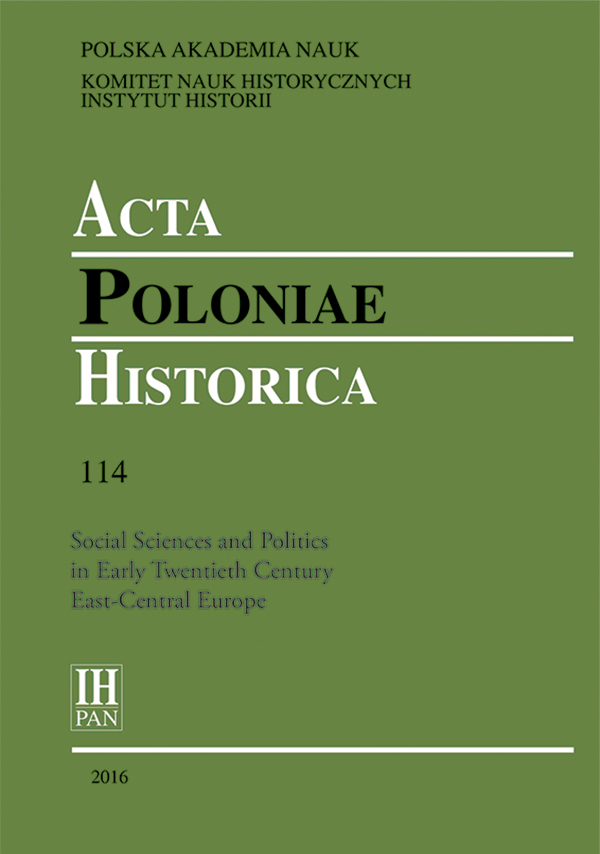Military Aspects in the Spatial Development of Polish Cities in the Nineteenth Century
DOI:
https://doi.org/10.12775/APH.2016.114.09Keywords
urban development, nineteenth-century cities, Polish territories, fortifications, railroadsAbstract
Military issues were deemed vital in the European politics of the nineteenth century. The aim of this article is to trace the most important implications of the ‘military bias’ of state authorities in the border region between the three empires (Germany, Russia and Austria – later the Austro-Hungarian Empire) which occupied the Central and Eastern part of the continent. Military authorities sometimes exercised a particularly strong influence upon urban policy. The two major issues addressed in this article are the fortifications (their creation, strengthening, and spatial development) which influenced urban sprawl – though perhaps not so much as is maintained in the scholarly literature – and the development of railways. The directions and tracks chosen for the railways were also influenced by the military plans, which in turn often differed much from the visions of the urban officials who made up the administration of the city.References
Beyrau Dietrich, Militär und Gesellschaft im vorrevolutionären Russland (Köln, 1984). Black Jeremy, War in the Nineteenth Century, 1800–1914 (Cambridge, 2009).
Bloch Jan, The Future of War in Its Technical, Economic, and Political Relations; Is War Now Impossible? (New York and Boston, 1899).
Bogdanowski Janusz, Warownie i zieleń twierdzy Kraków (Kraków, 1979). Demel Juliusz, Początki kolei żelaznej w Krakowie (Kraków, 1954).
Głowiński Tomasz and Klementowski Robert (eds.), ‘Mkną po szynach…’ Z dziejów transportu i komunikacji na ziemiach polskich na przestrzeni wieków (Wrocław, 2014). Grote Ludwig (ed.), Die deutsche Stadt im 19. Jahrhundert. Stadtplanung und Baugestaltung im industriellen Zeitalter (München, 1974).
Kleczke Karol and Wyszyński Władysław, Fortyfikacja stała (Warszawa, 1937).
Kołodziejczyk Ryszard (ed.), Studia z dziejów kolei żelaznych w Królestwie Polskim 1840–1914 (Warszawa, 1970).
Krajewski Mieczysław, Dzieje głównego dworca kolejowego w Warszawie (Warszawa, 1971).
Królikowski Lech, Twierdza Warszawa (Warszawa, 2002).
Mintzker Yair, The Defortification of the German City, 1689–1866 (Cambridge et al., 2012).
Ostrowska-Kębłowska Zofia, Architektura i budownictwo w Poznaniu w latach 1780–1880 (Poznań, 2009).
Pietrzak-Pawłowska Irena (ed.), Wielkomiejski rozwój Warszawy do 1918 r. (Warszawa, 1973).
Purchla Jacek, Jak powstał nowoczesny Kraków (Kraków, 1990).
Studia i Materiały do Historii Wojskowości (1966, 1976, 2009).
Downloads
Published
How to Cite
Issue
Section
License
Title, logo and layout of journal are reserved trademarks of APH.Stats
Number of views and downloads: 445
Number of citations: 1



